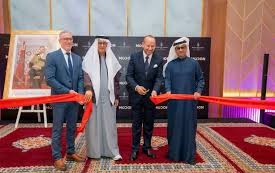
Morocco is embarking on an unprecedented overhaul of its hotel sector, aiming to elevate service standards and align its tourism industry with global benchmarks.
Spearheaded by the Ministry of Tourism, Crafts and Social and Solidarity Economy, alongside the Moroccan Society of Tourism Engineering (SMIT), this reform introduces a pioneering quality control system centred on “mystery visits.”
Under the new framework established by Law 80-14, all hotels—both existing and new—must now meet stricter criteria verified through unannounced inspections.
Specialized auditors will pose as ordinary guests to assess various facets of the hotel experience, including reception services, dining quality, room cleanliness, bedding standards, and facilities such as swimming pools and medical centres.
“This approach guarantees the real conformity of services, whether for initial classifications, mandatory reclassifications, or routine checks,” explained SMIT officials.
The initiative aims to ensure a uniformly high-quality customer experience regardless of the hotel’s location or category.
Earlier this month, SMIT launched four tenders targeting different hotel segments.
These include luxury and five-star properties (48.4 million dirhams), four-star hotels in the Marrakech-Safi region (50.3 million dirhams), other four-star hotels nationwide (28.8 million dirhams), and three-star establishments (20.3 million dirhams).
Auditors will be carefully selected for their discretion, impartiality, and methodological rigor, key to maintaining the credibility of these evaluations.
Morocco’s reform emerges as the kingdom strives to consolidate its position on the global tourism map.
“By professionalising the hotel sector, we attract discerning international travellers while retaining local visitors,” officials said, noting the critical role of accommodation quality in the broader tourism ecosystem.
Faced with mounting competition from Mediterranean and African destinations, this reform also seeks to create a stable regulatory environment that encourages private investment.
It aligns with the “Morocco 2023-2026” programme’s ambition to double tourist numbers by 2030.
Beyond service improvement, the reform addresses governance challenges by enforcing transparency and combating abuses linked to self-assessment or misclassification.
The introduction of mystery shopping as a standard evaluation tool marks a decisive step in Morocco’s quest to reposition itself as a premier tourist destination.
Whether this innovative method will deliver lasting transformation remains to be seen, but Morocco is clearly setting new standards in hospitality oversight.



